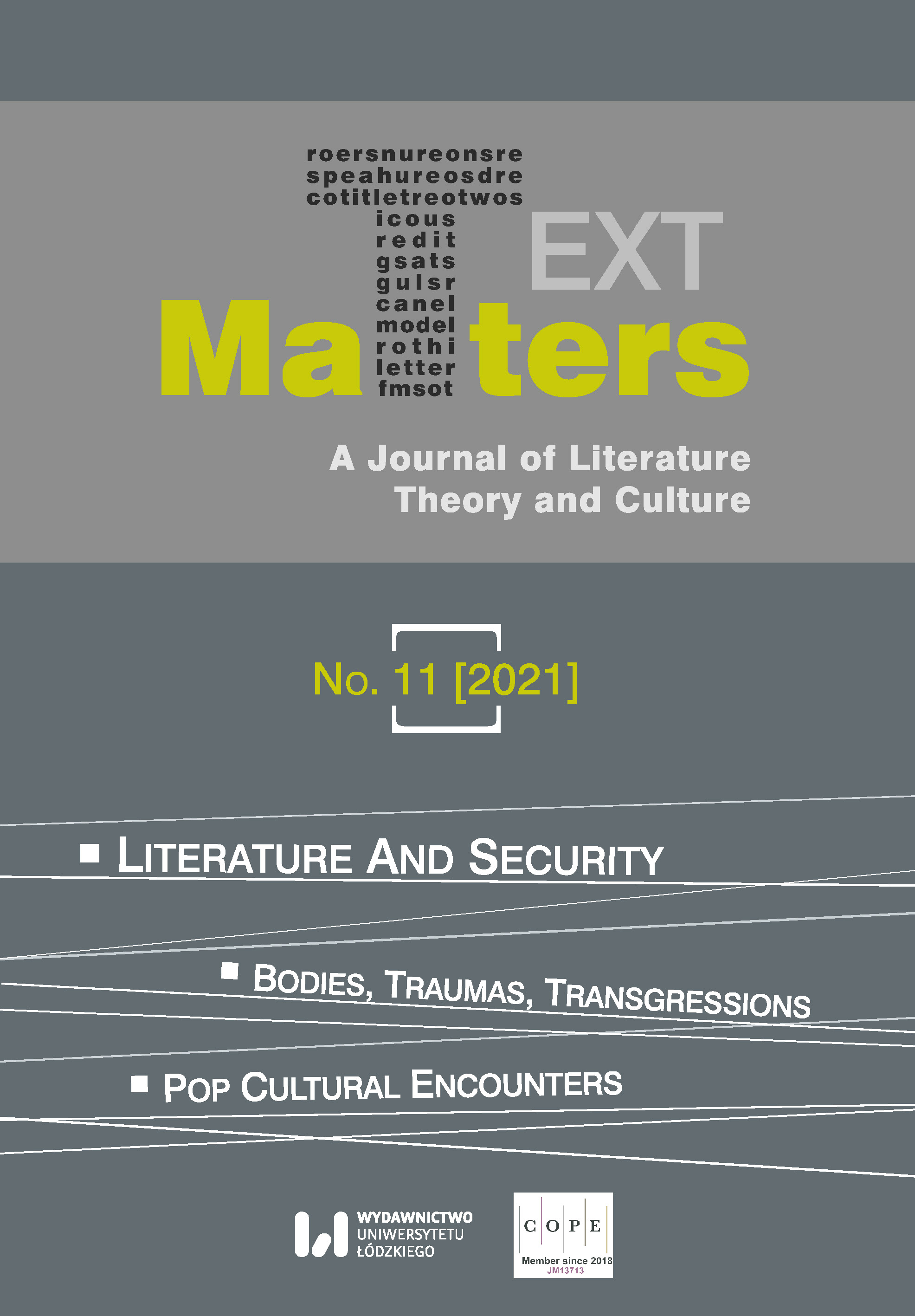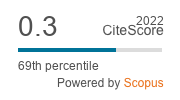Hercule Poirot and the Tricky Performers of Stereotypes in Agatha Christie’s Murder on the Orient Express
DOI:
https://doi.org/10.18778/2083-2931.11.13Keywords:
Agatha Christie, Murder on the Orient Express, Hercule Poirot, detective fiction, British fiction, prejudice, stereotypesAbstract
Agatha Christie’s Murder on the Orient Express (1934) remains well-read, and its hero Hercule Poirot continues to enjoy popular currency. Yet the text has not aged well due to some of its now clichéd plot developments and dialogue, as well as Christie’s depiction of class, ethnic and national prejudices in it and her other novels. This study hopes to re-energize discussion on Murder by finding defensible reasons for its apparent flaws. Not only do the stereotypical behaviors of the passengers narratively distract Poirot and the reader from a solution, but their flaws serve as foils against which Poirot’s heroic gravitas and cultural values are positively contrasted. Further, criticism often misses the point that the passengers are performing their behaviors, and if so, the deployment of stereotypes as only acted performances destabilizes them as permanent aspects of national or ethnic identity. Can Murder then be read as an anti-racist text?
Downloads
References
Alexander, Marc. “Rhetorical Structure and Reader Manipulation in Agatha Christie’s Murder on the Orient Express.” Miscelanea, vol. 39, 2009, pp. 13–27.
Google Scholar
Allmendinger, Blake. “The Erasure of Race in Agatha Christie’s And Then There Were None.” ANQ, vol. 32, no. 1, 2019, pp. 60–64. https://doi.org/10.1080/0895769X.2018.1469087
Google Scholar
DOI: https://doi.org/10.1080/0895769X.2018.1469087
Bargainnier, Earl F. The Gentle Art of Murder: The Detective Fiction of Agatha Christie. Bowling Green, 1980.
Google Scholar
Barnard, Robert. A Talent to Deceive. Dodd, Mead, 1980.
Google Scholar
Beaumont, Matthew. “Cutting Up the Corpse: Agatha Christie, Max Ernst, and Neo-Victorianism in the 1930s.” Lit: Literature Interpretation Theory, vol. 20, no. 1–2, 2009, pp. 12–26. https://doi.org/10.1080/10436920802690380
Google Scholar
DOI: https://doi.org/10.1080/10436920802690380
Bright, Brittain. “Writing Through War: Narrative Structure and Authority in Christie’s Second World War Novels.” Agatha Christie Goes to War, edited by Rebecca Mills and James Bernthal, Routledge, 2019, pp. 46– 62. https://doi.org/10.4324/9780367855185-4
Google Scholar
DOI: https://doi.org/10.4324/9780367855185-4
Cannon, Christopher. Middle English Literature. Polity, 2008.
Google Scholar
DOI: https://doi.org/10.1093/acprof:oso/9780199230396.001.0001
Cawelti, John G. “The New Mythology of Crime.” Boundary 2, vol. 3, no. 2, 1975, pp. 324–57. https://doi.org/10.2307/302105
Google Scholar
DOI: https://doi.org/10.2307/302105
Chandler, Raymond. “The Simple Art of Murder.” University of Texas at Austin, http://www.en.utexas.edu/Classes/Bremen/e316k/316kprivate/scans/chandlerart.html accessed 7 Oct. 2020.
Google Scholar
Christie, Agatha. An Autobiography. HarperCollins, 2011.
Google Scholar
Christie, Agatha. Murder on the Orient Express. William Morrow/Harper Paperbacks, 2011.
Google Scholar
Dalal, Radha. “Spaces of the Past: Nostalgia in the Murder on the Orient Express and The Last Express.” Engaging with Videogames, edited by Dawn Stobbart and Monica Evans, Inter-Disciplinary, 2014, pp. 265–76. https://doi.org/10.1163/9781848882959_026
Google Scholar
DOI: https://doi.org/10.1163/9781848882959_026
Ewers, Chris. “Genre in Transit: Agatha Christie, Trains, and the Whodunit.” Journal of Narrative Theory, vol. 46, no. 1, 2016, pp. 97–120. https://doi.org/10.1353/jnt.2016.0009
Google Scholar
DOI: https://doi.org/10.1353/jnt.2016.0009
Gore-Langton, Robert. “The ‘Detestable, Bombastic, Egocentric’ Detective—Hercule Poirot Lives On.” The Spectator, 1 Feb. 2014, https://www.spectator.co.uk/2014/02/murder-motive-and-moustachery accessed 7 Oct. 2020.
Google Scholar
Grella, George. “Murder and Manners: The Formal Detective Novel.” Novel: A Forum on Fiction, vol. 4, no. 1, 1970, pp. 30–48. https://doi.org/10.2307/1345250
Google Scholar
DOI: https://doi.org/10.2307/1345250
Hall, Lucy, and Gill Plain. “Unspeakable Heroism: The Second World War and the End of the Hero.” Heroes and Heroism in British Fiction Since 1800, edited by Barbara Korte and Stefanie Lethbridge, Palgrave Macmillan, 2017, pp. 117–34. https://doi.org/10.1007/978-3-319-33557-5_7
Google Scholar
DOI: https://doi.org/10.1007/978-3-319-33557-5_7
Hark, Ina Rae. “Impossible Murders: Agatha Christie and the Community of Readers.” Theory and Practice of Classic Detective Fiction, edited by Jerome H. Delmater and Ruth Prigozy, Greenwood, 1997, pp. 111–18.
Google Scholar
Hark, Ina Rae. “Twelve Angry People: Conflicting Revelatory Strategies in Murder on the Orient Express.” Literature/Film Quarterly, vol. 15, no. 1, 1987, pp. 36–42.
Google Scholar
Hawkes, David. “Agatha Christie.” Mystery and Suspense Writers, Volume 1, edited by Robin N. Winks and Maureen Corrigan, Charles Scribner’s Sons, 1988, pp. 195–216.
Google Scholar
Heilbrun, Carolyn. “Keynote Address: Gender and Detective Fiction.” The Sleuth and the Scholar, edited by Barbara A. Rader and Howard G. Zettler, Greenwood, 1988, pp. 1–10.
Google Scholar
Kahn, Irene. “Agatha Christie and the Detective Film: A Timetable for Success.” Literature/Film Quarterly, vol. 3, no. 3, 1975, pp. 205–14.
Google Scholar
King, Stewart. “E Pluribus Unum: A Transnational Reading of Agatha Christie’s Murder on the Orient Express.” Clues, vol. 36, no. 1, 2018, pp. 9–19.
Google Scholar
Lahlmangaihi, Z. D. “A Study of Power Dynamics in Select Novels by Agatha Christie.” 2014. Mizoram University, M.Phil. thesis.
Google Scholar
Lassner, Phyllis. “The Mysterious New Empire: Agatha Christie’s Colonial Murders.” At Home and Abroad in the Empire: British Women Write the 1930s, edited by Robin Hackett, Freda Hauser and Gay Wachman, U of Delaware P, 2009, pp. 31–50.
Google Scholar
Light, Alison. Forever England: Femininity, Literature and Conservatism Between the Wars. Routledge, 1991.
Google Scholar
Linares, Trinidad. “Dis-Orienting Interactions: Agatha Christie, Imperial Tourists, and the Other.” 2018. Bowling Green State University, MA thesis.
Google Scholar
Lutkus, Alan. “Agatha Christie.” The Crime Novel, edited by Tony Hilfer, U of Texas P, 1990, pp. 72–80.
Google Scholar
Makinen, Merja. “Agatha Christie (1890–1976).” A Companion to Crime Fiction, edited by Charles J. Rzepka and Lee Horsley, Blackwell, 2010, pp. 415–26. https://doi.org/10.1002/9781444317916.ch33
Google Scholar
DOI: https://doi.org/10.1002/9781444317916.ch33
Makinen, Merja, and Patrick Phillips. “Transforming Justice? Murder on the Orient Express 1934–2010.” Clues, vol. 34, no. 1, 2016, pp. 41–51.
Google Scholar
Marine, Brooke. “Kenneth Branagh’s Ridiculous Mustache Will Almost Certainly Return in Murder on the Orient Express Sequel.” W Magazine, 21 Nov. 2017, https://www.wmagazine.com/story/murder-on-the-orient-express-sequel-death-on-the-nile-kenneth-branagh accessed 7 Oct. 2020.
Google Scholar
Martin, Eric. “Agatha Christie, Hercule Poirot, and Reverse Modernism.” Pop Matters, 16 Jun. 2015, https://www.popmatters.com/187404-agatha-christie-and-reverse-modernism-2495598741.html accessed 7 Oct. 2020.
Google Scholar
Mills, Nancy. “The Case of the Vanishing Mystery Writer: Christie Liked Only Two of the 19 Movies Made from Her Books.” Chicago Tribune, 30 Oct. 1977, p. 44.
Google Scholar
Munt, Sally. Murder by the Book? Feminism and the Crime Novel. Routledge, 1994.
Google Scholar
Murder on the Orient Express. Directed by Kenneth Branagh, performances by Kenneth Branagh and Penélope Cruz, Twentieth Century Fox, 2017.
Google Scholar
Murder on the Orient Express. Directed by Philip Martin, performances by Eileen Atkins and David Suchet, Government of Malta/ITV Studios/WGBH, 2010.
Google Scholar
Murder on the Orient Express. Directed by Sidney Lumet, performances by Lauren Bacall and Albert Finney, EMI Films, 1974.
Google Scholar
Pendergast, Bruce. Everyman’s Guide to the Mysteries of Agatha Christie. Trafford, 1994.
Google Scholar
“Poirot is Not Comical, Agatha Christie’s Family Tells Actor.” Sydney Morning Herald, 4 Jun. 2013, https://www.smh.com.au/entertainment/tv-and-radio/poirot-is-not-comical-agatha-christies-family-tells-actor-20130604-2nnhy.html accessed 7 Oct. 2020.
Google Scholar
Prior, Christopher. “An Empire Gone Bad: Agatha Christie, Anglocentrism and Decolonization.” Cultural and Social History, vol. 15, no. 2, 2018, pp. 197–213. https://doi.org/10.1080/14780038.2018.1427354
Google Scholar
DOI: https://doi.org/10.1080/14780038.2018.1427354
Ro, Christine. “Agatha Christie Shaped How the World Sees Britain.” BBC Culture, 7 Sept. 2018, http://www.bbc.com/culture/story/20180907-agatha-christie-shaped-how-the-world-sees-britain accessed 7 Oct. 2020.
Google Scholar
Rowland, Susan. From Agatha Christie to Ruth Rendell. Palgrave Macmillan, 2001. https://doi.org/10.1057/9780230598782
Google Scholar
DOI: https://doi.org/10.1057/9780230598782
Schaub, Melissa. “Middlebrow Feminism and the Politics of Sentiment: From The Moonstone to Dorothy L. Sayers.” Modern Language Studies, vol. 43, no. 1, 2013, pp. 10–27.
Google Scholar
Singer, Eliot A. “The Whodunit as Riddle: Block Elements in Agatha Christie.” Western Folklore, vol. 43, no. 3, 1984, pp. 157–71. https://doi.org/10.2307/1499897
Google Scholar
DOI: https://doi.org/10.2307/1499897
Slung, Michele. “Let’s Hear It for Agatha Christie: A Feminist Appreciation.” The Sleuth and the Scholar, edited by Barbara A. Rader and Howard G. Zettler, Greenwood, 1988, pp. 63–68.
Google Scholar
Suits, Bernard. “The Detective Story: A Case Study of Games in Literature.” Canadian Review of Comparative Literature, vol. 12, no. 2, 1985, pp. 200–19.
Google Scholar
York, R. A. Agatha Christie: Power and Illusion. Palgrave, 2007. https://doi.org/10.1057/9780230590786
Google Scholar
DOI: https://doi.org/10.1057/9780230590786
Published
How to Cite
Issue
Section
License

This work is licensed under a Creative Commons Attribution-NonCommercial-NoDerivatives 4.0 International License.













